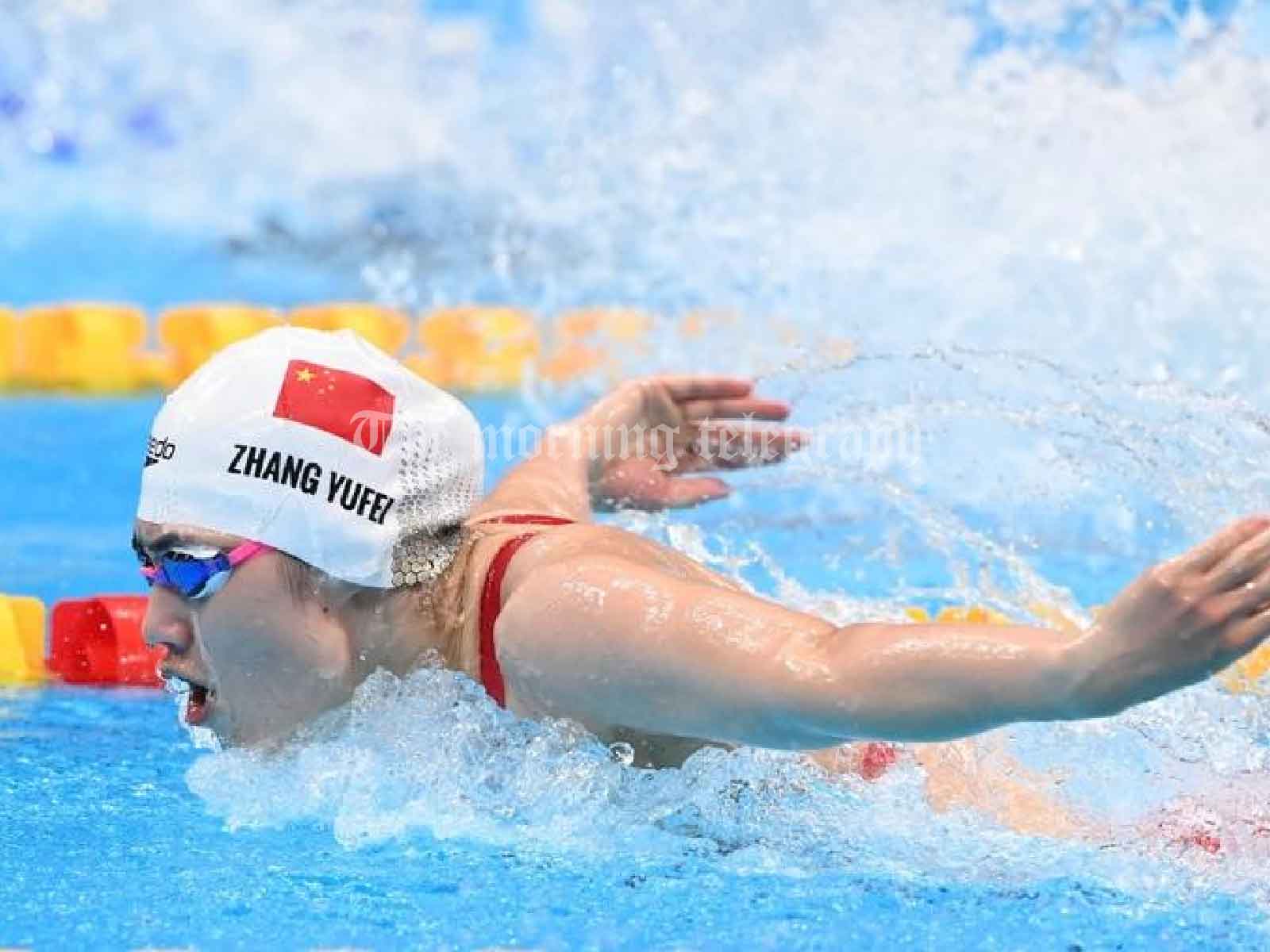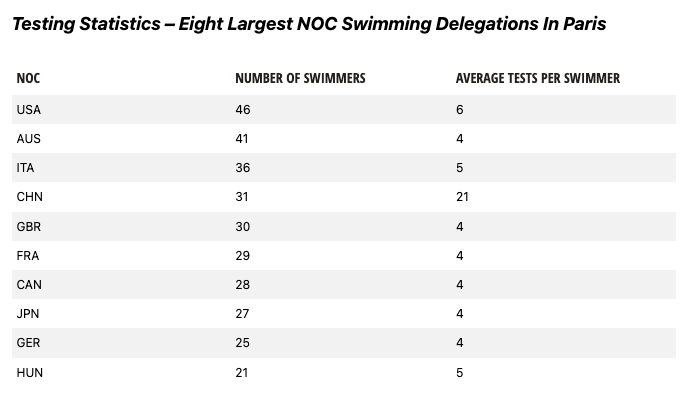
Fukuoka, Japan – In a move to ensure a clean and fair competition at the Paris 2024 Olympics, World Aquatics has significantly ramped up its anti-doping efforts. The organization revealed that Chinese athletes are undergoing more frequent testing for banned substances compared to other nations. On Tuesday, World Aquatics released comprehensive testing data for all aquatics athletes for 2024.
Anti-Doping Testing Data
Since January 1, World Aquatics has conducted a total of 2,145 anti-doping tests organized by the International Testing Agency (ITA) on Olympic athletes. Including tests from other anti-doping organizations, a total of 4,774 tests have been conducted, averaging 3.4 tests per aquatics athlete competing in Paris. This marks a notable increase from the lead-up to the 2016 Olympics in Rio and the 2021 Games in Tokyo.

Increased Testing for Chinese Athletes
Following a doping scandal involving Chinese athletes that came to light in April, World Aquatics has intensified testing on Chinese swimmers. Since January 1, the 31 swimmers representing China at the Paris Olympics have each been tested at least 10 times by World Aquatics, averaging 13 tests per swimmer. Including tests from other organizations, the average number of tests per Chinese swimmer rises to 21.
“World Aquatics conducted a total of 418 tests through this program. All Chinese swimmers have been tested out-of-competition at least eight times by World Aquatics, independently of any other anti-doping organization and using a WADA-accredited laboratory based in Europe,” the organization reported.
For comparison, Australian swimmers have been tested an average of four times, and USA swimmers an average of six times in the same period.

Notable athletes such as multi-time world champion and world record holder Qin Haiyang have been tested 21 times this year, while defending Olympic champions Wang Shun and Zhang Yufei have undergone 22 and 19 tests, respectively.
Continued Efforts in Paris
According to Chinese team nutritionist Yu Liang, who posted (and later deleted) on social media, the rigorous testing continued upon the team’s arrival in Paris. The 31 athletes were reportedly tested nearly 200 times within their first 10 days.
“It is our top priority that our athletes compete in a clean and fair competition,” said Husain Al-Musallam, President of World Aquatics. “Our rigorous testing program reflects our dedication to upholding the highest standards of integrity in aquatic sports and we are grateful for the ITA’s partnership in conducting it.”

As the Paris 2024 Olympics approach, World Aquatics remains committed to ensuring that all athletes compete on a level playing field, free from the influence of performance-enhancing substances.







